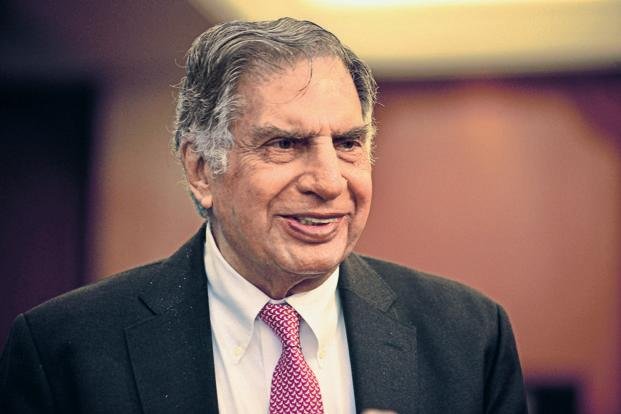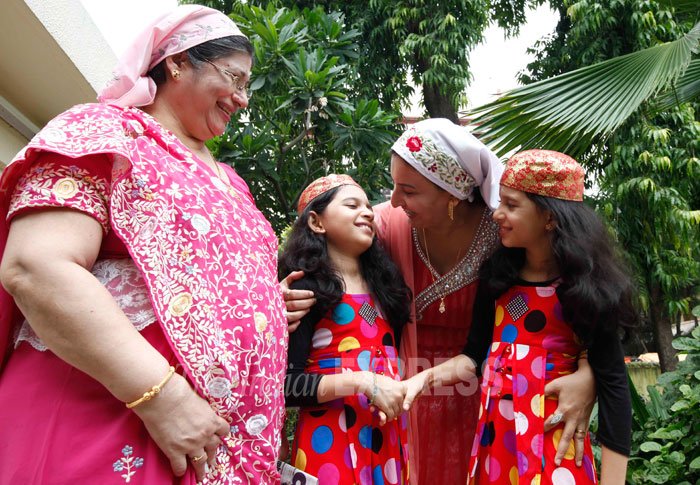Parsi or Non-Parsi? The Billion Dollar Question Before Ratan Tata
Who would be the next chairman of Tata Sons? An insider or someone from outside the group?
This has been the question being debated since Monday, when the murky details of one of the biggest boardroom battles in the country began to seep out of the Bombay House. However, the question is a little more complex — it is not just about whether the new chairman will be an outsider, it is also, more critically, about whether he or she will be a Parsi.
Tata watchers say this is at the core of the considerations before Ratan Tata, whose credibility and intent is being questioned. There is a perception that he is not very engaged with the community and doesn’t think in these terms.
However, this may not be entirely true. Those who have worked with or are associated with the group say that the DNA of the group is fundamentally Parsi, and is not just about the Tata family.
Whatever decision Ratan Tata (or the selection committee, to be technically correct) takes, he has to grapple with this question very seriously.
The problem is that there are very few Parsi senior executives at the top-level who could be perceived as big enough to qualify for the position. Reconsidering Noel Tata will also be tricky as it will be an admission of a possible mistake in ignoring his name earlier.
However, he does carry the Tata surname, is a Parsi, and is also related to the Mistry family. His selection may contain the ongoing ugly battle between the Mistrys and the Tatas.
Tata Group boasts about the “Tata way” which is born out of the founding fathers’ strong commitment to charity and trusteeship, based on Parsi values. If this is the core value of the group, it is natural to argue that Ratan Tata will be biased in favour of a potential Parsi leader.
One might say this is a bit of a parochial (and somewhat irrational) approach, but it is the reality.
Now, about the names. It’s possible that Ratan Tata has already identified the next chairman and the four-month window for the selection committee is just for the process to be followed.
If this is not the case, there is a likelihood of Ratan Tata continuing as interim chairman for longer than initially planned. After N Chandrasekaran’s and Ralph Spelth’s induction in Tata Sons’ board, there is also a speculation that the former could be the chosen one. No one knows for sure.
However, if a non-Parsi is chosen, it is going to be seen as a departure from tradition.
The far bigger headache for Ratan Tata is going to be how to reorganise two key Tata Trusts – Sir Ratan Tata Trust and Sir Dorabji Tata Trust. He will have to give clarity on the relationship between Tata Trusts and Tata Sons. The current crisis is also a result of this vagueness and duality.
Through his actions, Ratan Tata has clearly indicated that Tata Trusts will have final say over Tata Sons.
These two trusts will also have to be recast because most members are now very old.
Although there is no age limit to be on the boards of the trusts, they will have to be reorganised sooner rather than later.
So, in case Ratan Tata chooses to go for a non-Parsi chairman for Tata Sons, a recast of the two trusts is a certainty. This will mean that the Parsi character of the Trusts will be reinforced with a credible line-up of fresh faces from the community to go with current senior board members.
This will be another painful exercise to be taken up in an atmosphere where the community is sad and divided.
Ratan Tata will have to deliver what he preaches, regarding both the “Tata way and ethics” and the motto of the trusts: Catalysing transformational change in India.
He must remember that his credibility is at stake and his actions are going to be critically evaluated by all the stakeholders.
(Sanjay Pugalia is the Editorial Director of Quintillion Media and can be reached at @sanjaypugalia)
Published on The Quint





